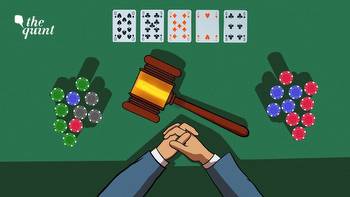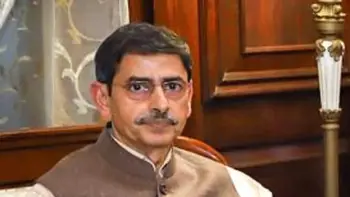Online gaming industry prepares court challenge against TN gambling ordinance

The online gaming industry is planning to challenge the Tamil Nadu ordinance that seeks to ban online gambling and regulate online gaming in the state. The ordinance was passed by the state government on Monday, October 3. Stakeholders and lawyers with knowledge of developments said that the ordinance “goes against many years of established court orders”.
This will be the second time that the industry has challenged a government decision in the state. The Madras High Court struck down the Tamil Nadu government’s interim move to ban online rummy, poker and other similar games in August last year — deeming that it was against the legal norm of the Constitution.
The ordinance brings under its ambit “online games of chance”, which it defines as any online game that includes both an element of chance and skill but the chance outweighs the skill required to play the game. It also includes games that have both the elements, and requires players to have “superlative” skill to outweigh the chances — among other factors.
According to Jay Sayta, a prominent technology and gaming lawyer, the ordinance clubs online rummy and poker under games of chance, without clearly defining whether online fantasy games would also be included under this. “Such a regulation goes against years of established court regulations, which have always segregated games of chance and skill. The law is trying to establish a new regulation of sorts where the two are not mutually exclusive,” he said.
While gambling is a state subject in India, the Public Gambling Act, 1867 prohibits betting money on games of chance in India. Rulings from various courts in the past though have categorized games like rummy, poker and daily fantasy sports (like Dream 11), as games of skill.
The landmark KR Lakshmanan vs State of Tamil Nadu verdict by the Supreme Court in 1996 is typically cited as the primary precedent. The court ruled that a game of skill is one that is “not dependent on mere chance or accident but determined by many factors.”
Sayta added that the ordinance will be challenged in courts as early as the coming week itself, by gaming operators and other stakeholders of the industry.
However, as opposed to the previous ban that the Tamil Nadu government attempted to impose on online gaming, lawyers state that with this ordinance, the state government is looking to take a case-wise approach.
“It is the same attempt from the government in a different guise, but the setting up of a regulatory committee will likely see them take a case-wise approach to regulating different games. For instance, slight variations to rules of various rummy games could push them towards being defined either as a game of skill, or chance, under the definition of this ordinance. There is no international committee of rules for rummy, so there has to be a case-wise approach,” said Shoubhik Dasgupta, partner at law firm Pioneer Legal.
Industry bodies, too, expressed “surprise” and “disappointment” in the ordinance. Sameer Barde, chief executive of E-Gaming Federation, said that rummy’s position as a game of skill “has been ruled by the Supreme Court as a protected trade under Article 19(1)(g) of the Constitution,” and classifying it as a game of chance is “directly in violation of Supreme Court and High Court judgments.”
Roland Landers, chief executive of All India Gaming Federation, noted that a Supreme Court hearing on this matter is slated for next month, and passing the ordinance in the interim supersedes the same. Sayta, however, said that while the hearing could have a lasting say on whether the ordinance would stand, reaching a verdict on it could take “months, or even years”.
Stakeholders also noted that Ministry of Information and Broadcasting (MIB) advisories issued on October 3 directed OTT players and digital news publishers to cease from airing advertisements of betting platforms. They said that the advisory warned against international platforms like Betway etc, which they claim are different from rummy, poker or DFS platforms in India.
While fantasy games may not be directly banned as a result of the ordinance, a top official from an Indian gaming firm, who requested anonymity, said that they will likely fall under a “gray area” that could see their veracity being challenged.
Pioneer’s Dasgupta said that gaming operators will likely use such advisories — and the fact that it does not club games under gambling — to challenge the ordinance in court.
































